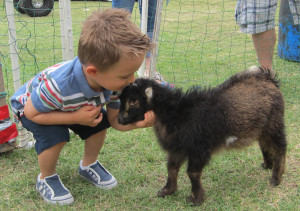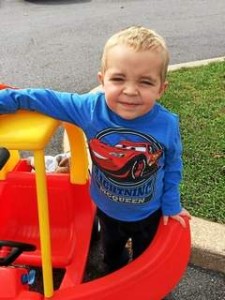The devastated family of a 4-year-old Oregon girl who died Monday after contracting E. coli plans to sue a hospital the family says failed to properly diagnose the illness.
 Serena Profitt was taken off life support Monday evening after falling sick just a week prior, despite several attempts to get her medical help as her condition grew increasingly worse, her family said.
Serena Profitt was taken off life support Monday evening after falling sick just a week prior, despite several attempts to get her medical help as her condition grew increasingly worse, her family said.
“We don’t want money, we want them to be accountable … to say this will not happen again to another child,” the girl’s aunt, Aleasha Hargitt, told KATU-TV.
Her family took the blond child to the Samaritan North Lincoln Hospital in Lincoln City, Ore., Sept. 3 and sent her home
“(Serena’s mom) asked (the hospital) to run the tests, so they dismissed her from the hospital at Lincoln City on Wednesday with the rotavirus, they said go home, check in with their pediatrician on Thursday, which was recommended by the hospital,” Hargitt told the TV station.
The next day, the family returned to the same hospital with the girl, who’d had a fever, abdominal pain and bloody diarrhea. A different doctor saw the sick girl, but again sent the family home, this time with a misdiagnosis, Hargitt says.
“He specifically said E. coli was negative,” Hargitt told KATU.
The family again returned home, but Serena showed no improvement. Distressed and concerned, they drove about 50 miles Saturday to a hospital in McMinnville, Ore., where doctors realized her condition was grave.
“Everybody was very surprised. I know the McMinnville doctor was maddened, like, he was upset,” Hargitt told the station. “If (North Lincoln Hospital) ordered (the test), why didn’t (they) run it? Why did you cancel it? Is it too expensive? Is it too time consuming? Is it too much out of you day. I don’t know. It’s a question they don’t want to answer right now.”




.jpg) protection in the Health Service Executive (HSE).
protection in the Health Service Executive (HSE)..jpg) bacteria.
bacteria..jpeg) infection; a 17-month-old has also developed life-threatening complications affecting the kidneys. The other patients are all adults, health officials said.
infection; a 17-month-old has also developed life-threatening complications affecting the kidneys. The other patients are all adults, health officials said.